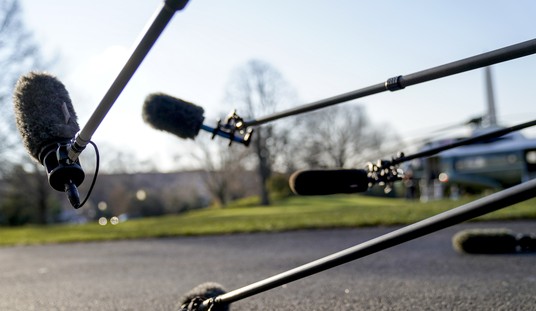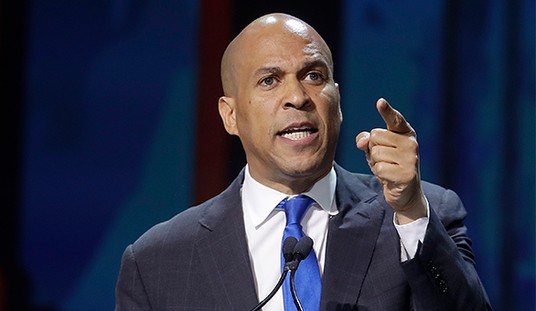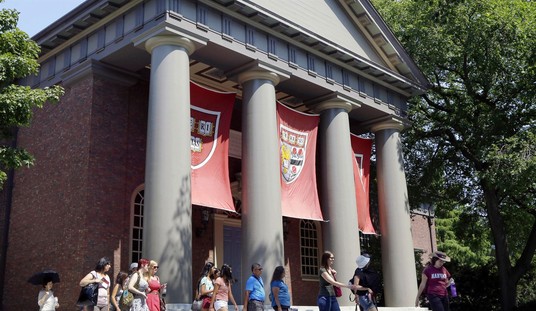The Wall Street Journal published a piece on Friday titled GOP Funds Donald Trump’s Defense in Russia Probe With Help From a Handful of Wealthy People. The deck headline reads: “Payment arrangement is legal, but ethics experts warn that reliance on party and campaign accounts could raise thorny political issues.” And here is the opening paragraph:
President Donald Trump’s attorneys in the probe of Russian election interference are being funded in part through a Republican Party account with a handful of wealthy donors—including a billionaire investor, a property developer seeking U.S. government visas and a Ukrainian-born American who has made billions of dollars doing business with Russian oligarchs.
The article lists details about several other donors, but I skipped ahead to the part about the Ukranian guy, to see what the Wall Street Journal says about who he is and why he is donating to Trump’s defense:
In April, billionaire Len Blavatnik gave $12,700 to the RNC’s legal fund, on top of donations of about $200,000 to other RNC accounts. He also gave the legal fund $100,000 in 2016, according to FEC filings.
The contribution from Mr. Blavatnik came during the Federal Bureau of Investigation’s probe of U.S. intelligence agencies’ findings of Russian meddling in the U.S. election, a month before the Justice Department appointed a special counsel to oversee its probe of Russian interference—which subsequently prompted Mr. Trump to hire a private legal team.
Moscow has denied interfering in the election. Mr. Trump has denied his campaign colluded with Russia and called the investigations a “witch hunt.”
A spokesman for Mr. Blavatnik didn’t return a request for comment. The White House referred questions to the RNC.
Mr. Blavatnik, who was born in Ukraine when it was part of the Soviet Union, and moved to the U.S. in his early 20s, amassed his fortune in Russia in the years following the collapse of the Soviet Union.
He is a longtime business partner of Viktor Vekselberg, who is one of the richest men in Russia and has close ties to the Kremlin.
In 2013, Mr. Blavatnik earned billions when he, Mr. Vekselberg and two other partners sold their stake in the oil company TNK-BP to Rosneft, a Kremlin-controlled oil company. Rosneft’s chief executive is Igor Sechin, a top ally of Russian President Vladmir Putin.
During the 2016 campaign, Mr. Blavatnik through his company donated to several Republican presidential campaigns, including for Wisconsin Gov. Scott Walker and South Carolina Sen. Lindsey Graham. He didn’t donate to Mr. Trump’s campaign.
Well. That doesn’t sound like great cause for concern. Yes, Blavatnik’s business partner has close ties to the Kremlin. But who doesn’t? Sure, Blavatnik earned billions from a sale made to a Kremlin-controlled company. Who among us can’t say the same about ourselves? But — he donated to other Republicans and not Trump during the presidential election. If he’s helping to fund Trump’s Russia defense, who are we to complain? It’s rather standard influence-seeking by a businessman, of the sort any wealthy American citizen does routinely.
Shall we stop there or shall we dig deeper?
Sure, let’s dig deeper. Why not?
First, Blavatnik’s ties to Trump run a little deeper than the Wall Street Journal revealed. His company Access Industries donated a cool million to Trump’s inaugural committee. And Blavatnik became a business partner with Trump’s Treasury Secretary:
Treasury Secretary Steven Mnuchin just got a new Hollywood business partner: a man who made billions investing in Russia.
A company run by Len Blavatnik announced a deal Tuesday to buy a stake in a film-finance firm that, in turn, is engaged in a joint venture with Mnuchin, backing blockbusters including “The Lego Batman Movie.” The Treasury secretary has pledged to sell his own interest in the business by June.
All of that seems legal and aboveboard. What big businessman doesn’t have some ties to a presidential administration, after all?
But here’s what got my attention.
It also turns out this same fella, Len Blavatnik, gave a gang of money to Oxford University in 2010. Like $75 million worth. So the folks at Oxford named their school of government the “Blavatnik School of Government” (as you do) . . . and then something weird happened. A group of folks wrote a letter to The Guardian suggesting that Blavatnik has some unsavory ties with folks who have reason to oppose the Magnitsky Act:
Blavatnik has not been alone in seeking to collaborate with Oxford. His fellow oligarchs Mikhail Fridman and Pyotr Aven from Alfa-Bank gave a joint “award for excellence in foreign investment in Russia” with the Oxford Saïd Business School from 2007 to 2011.
All these oligarchs belong to a consortium of Russian billionaires called Access-Alfa-Renova (AAR). The consortium has long been accused of being behind a campaign of state-sponsored harassment against BP. In 2008-09 dozens of British and other western managers were forced out of Russia. As part of this campaign, Vladimir Putin’s FSB intelligence agency fabricated a case against two Oxford graduates. According to evidence from its jailed owner Sergei Bobylyov, Alfa-Bank oligarchs also raided a retail company called Sunrise.
The spy case and the attack on Sunrise involved the participation of Russian officials who are listed as gross human rights violators by the US Treasury in line with the Sergei Magnitsky Rule of Law Accountability Act of 2012.
These corporate abuses took place in Russia with active official support. There was a backdrop of state-sponsored propaganda. Russian state media broadcast libelous assertions against western and Russian citizens. AAR went on to make billions from a highly controversial deal with Rosneft.
Oxford University apparently failed to investigate these facts, AAR’s track record from the beginning, and its close ties with the Kremlin.
We insist that the university should stop selling its reputation and prestige to Putin’s associates.
Isn’t it weird how that name “Magnitsky” keeps coming up in connection with Trump?
The letter to The Guardian was signed by what Cherwell.org describes as “a group of Oxford graduates and human rights activists” including Vladimir Bukovsky, a Soviet-era dissident who wrote a book I read recently called To Build a Castle: My Life as a Dissenter. (If you haven’t read it already, I highly recommend it.)
Blavatnik’s lawyer, I should hasten to add for fairness, denies all this. Below the letter, The Guardian published the following:
Lawyers for Mr Blavatnik contacted us after publication, in May 2016, stating that Mr Blavatnik is not an associate of Vladimir Putin, with whom he has had no personal contact since 2000. Mr Blavatnik’s lawyers also stated that he is a strong believer in encouraging democracy and freedom throughout the world and that he had no involvement whatsoever in any alleged state-sponsored campaign of harassment against BP in Russia.
That may be. Lawyers tend to be biased, but I don’t know who’s right here. I just flag the issue for you, the reader.
Let’s sum it all up. This group of dissidents, human rights activists, and others signs a letter saying Blavatnik — the fella who is partially funding Trump’s defense to the Russia claims, who gave a ton of money to his Inaugural Committee, and who was a business partner with his Treasury Secretary — is part of a consortium alleged to have been involved with a raid tied to human rights abusers named in the Magnitsky Act.
Well, that’s kind of interesting. Especially given that, if you read my recent series (you did read my recent series, didn’t you?), you know that the Magnitsky Act is what Natalia Veselnitskaya was trying to get repealed when she met with Trump Jr., Paul “Shady” Manafort, and Jared “I Told Trump Not to Do It” Kushner.
As I always say when I write posts about Russia, this does not show collusion between Trump and the Russian government. (People ignore me when I say that, but I say it anyway.) But it’s interesting to see the interconnections here . . . and how often things come back to the Magnitsky Act.













Join the conversation as a VIP Member